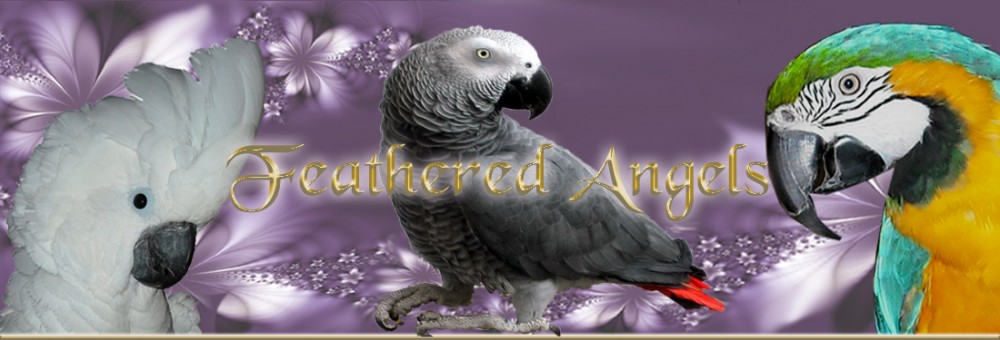Ann Brooks
President, Phoenix Landing
WHY ADOPTION MAKES SENSE.
Someday, odds are that your bird will need a new home. Mine
too. Phoenix will actually need several new homes since he
is a very young 13 year-old greenwing macaw. I sure do hope
they’re good ones!
By my standards, Phoenix won’t be a “rescue” either. While I am
his zookeeper, he receives high quality wholesome foods, abundant
activities and a rich social life. He has a stainless cage, playgyms,
an Atom™, a ringstand and a large outdoor aviary. I take
good care of him, and I want to make sure his future caretakers
will do the same, or better. My worst nightmare is that Phoenix
will go from the good life to the bad, and this is a concern for all
long-lived parrots most especially.
Many, many birds lose their good homes because people’s lives change through no fault of their own. We often acquire our parrots without realizing that they will (or should) live decades. Even the smallest parakeet can live to 18 plus years, way longer than many people can care properly for a pet. The term ‘forever home’ is a real misnomer when it comes to most parrots, and we do them a grave disservice when we fail to plan for their futures.
Almost 1,200 parrots have come to the Phoenix Landing Foundation as of August 2008, and the wait list grows longer by the day. By far the number one reason that people relinquish their bird is because they can no longer “provide enough time and attention.” These are not so-called “rescue” parrots; these are birds that simply need a new family.
And how about those rescue birds that come from situations of true abuse or neglect, can they adapt well to a new life? Of course! In fact, these birds often make the best of companions. Parrots are supremely resilient, adapt well to new circumstances, and often thrive best on change. Nature has made them so, with constant variables such as unpredictable food sources and weather, predators, and the hard search for a good nest cavity. Parrots never live alone in the wild. To do so would probably mean death-by-predation; so if a mate is lost there is no dallying to find a new one.
Birds in captivity generally carry these same attributes, adapting well to their new homes, no matter what their past situation involved. Respect is the key. Allowing a bird time to learn trust and feel safe, and recognizing their need for personal space — these are the things that can make a huge difference in developing a positive relationship with any parrot.
THIS IS WHY ADOPTION MAKES SENSE.
